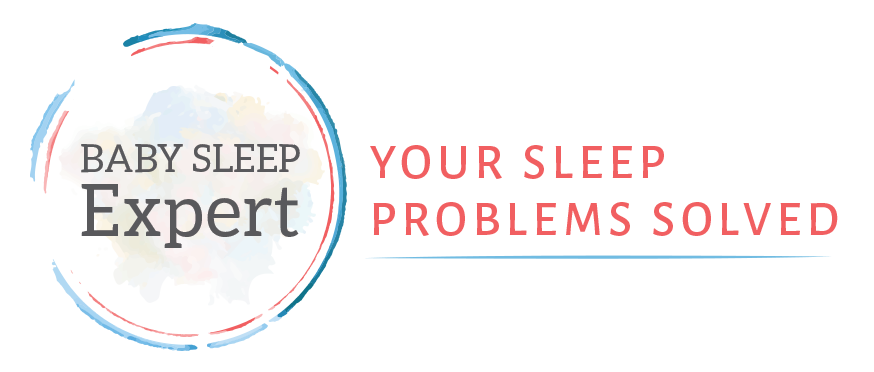5 Myths busted about sleep training

Ok, so I’ve heard it all! Being in this industry you really do have to have a pretty thick skin sometimes when it comes to the misunderstandings and downright ignorant beliefs that exist when it comes to ‘sleep training’ your baby. Some think it means shutting the door on your 9 week old baby for 12 hours. Some think it means stopping night-time feeds and just staying out of the room until the baby ‘learns’ to sleep. Some parents think it means that their parenting concerns will be completely ignored while the sleep consultant takes over their house for a week.
I’ve heard it all…… and I do have a thick skin, because I feel very safe and comfortable in the knowledge that how I help babies and families is kind and gentle and has everyone’s best interests at heart. But my first priority is to help teach a baby to get the sleep that their little bodies and brains need so much. Sleep is not a luxury it is a human necessity! Here is my philosophy of what sleep teaching really means and what I have found actually works for most families…
1. ‘Sleeping through the night’ is a misnomer
When a mum says to me ‘I just want my baby to be able to sleep through the night’, I get it. She wants a good chunk of restorative sleep for her baby. But in reality no-one actually sleeps all through the night. Babies, and adults alike wake up several times during the night and we are able to put ourselves back to sleep again. These wakeups are called nocturnal arousals and they are mostly so quick that we don’t even remember waking up. We just roll over and go back to sleep again. A baby or toddler will only be able to put themselves back to sleep again at night if they are able to fall asleep for bedtime and naps independently. Sleeping through the night can mean different things depending on the age of the baby. For example, for a baby in the newborn stage, 5-6 hours straight of sleeping is considered fantastic and they would generally not be able to go for longer that this without a feed. For older babies it may be more like 8-9 hours. But what they are capable of is very age dependent and of course closely linked to their own self settling ability.
2. Working on a baby’s sleep does not mean we don’t feed them overnight
This is another common misconception about sleep training. That we just remove the need for feeding. No way! I could never imagine not feeding my baby when they were hungry. The fact is that newborns will need 2-3 feeds overnight. As bub grows and reaches about 4 months it will generally lower to 1-2 feeds. This then usually becomes more like one feed overnight somewhere between 5-7 months. There are many factors that will determine how many feeds they need and if you have been advised by your paediatrician or doctor to feed more then of course you must. The trap that I find many parents getting into is constantly feeding them overnight because they are scared that they might be hungry when in reality they are just relying on the feeding to be able to fall back to sleep and it isn’t hunger at all.
3. Sleep consultants don’t invade your home and stay all night
This in another common sleep training misconception. That the sleep consultant has to come to your home overnight and stay all night. Apparently in that one night they are able to work their magic and miraculously teach your baby to sleep all through the night. Teaching always takes more than one night…. I can’t speak for all consultants, but for me this is definitely not how it works. I much prefer to have one in-person or over the phone/video conference in the day time. I gather all the information I need from the mum/dad in that time and come up with a plan for them based on their babies needs and their parenting style. I give lots of follow up phone support to really answer all their questions and guide them carefully to success across a couple of weeks. The best consultants should be available for heavy follow up support and not just see you for one night and then leave you to it….
4. Sleep training does not equal ‘cry it out’
Now here’s the big one! By far the most common misconception when it comes to helping your baby learn to sleep is that you will be required to leave your baby to ‘CIO’(use the cry it out method). To be honest I find this a really old fashioned way of thinking. There are many tools in our tool box when it comes to teaching a baby to sleep better and CIO isn’t one of them. Firstly, you need to look at sleep environment, naps and nap timings, feeds and feed timings, awake windows, bedtimes etc… and then we look at a technique to help them learn to sleep. There are many ways we can support our baby while they learn to sleep. And the word support is the key. Because I do believe they need to be supported while they learn this new skill. In my extensive experience working with babies, protesting during sleep teaching is communication of frustration and tiredness. And babies are allowed to communicate this. They are simply not getting the sleep associations that they are used to and they protest that change. That's ok...... Supporting them as much as needed, as well as allowing them some space to have dominion over their little bodies is the key to quickly learning to fall asleep on their own. 
5. You cannot sleep train a newborn
That’s right, they are just too young and not cognitively or developmentally capable of learning to fall asleep without assistance everytime. Newborn sleep is very unstructured. They often go for long periods in deep sleep and then light sleep. They are not capable of following a nap routine, and rather, their day flows along in a cycle of feeding, awake windows and sleep. Trying to get them to follow a ridged routine or sleep for an expected amount of time will only end in frustration. However, it does not mean that we can’t prepare our newborns for healthy sleep habits and set them up well in this stage to become great little sleepers. It just doesn’t involve ‘sleep training’. It’s not until more like 16 weeks plus that if needed we can teach them to sleep really well with the fastest results.
For me sleep training is really teaching the skill to a baby or toddler of learning to fall asleep independently. It is a lifelong essential skill that will ensure your little one gets the sleep that they biologically need and that allows the parents to get the rest that they need as well. It is respectful, gentle, and always should be done in strong collaboration with the parents. It is a gift and I feel very lucky to be able to help teach and guide babies and families. If you have any questions or need any help with teaching your baby this skill, contact me at babysleepexpert.com.au
Categories
- Testimonials (76)
- Blog (26)
- Uncategorized (2)
- Daylight Savings (2)
- Food and Sleep (4)
- Naps (4)
- 4, 5, 6 Months (2)
- 7-12 Months (1)
- Newborn (4)
- Night Sleep (2)
- Sleep teaching (7)
- Teething (1)
- Toddler Sleep (2)
- Holidays and Travel (2)
- Testimonials_1 (12)
- Testimonials_2 (12)
- Testimonials_3 (12)
- Testimonials_4 (12)
- Testimonials_5 (12)
- Testimonials_6 (12)
- Testimonials_7 (4)


0 comments
Leave a comment
Please log in or register to post a comment